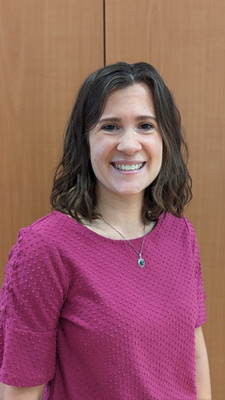Rachel Kinsella, PhD

Contact Information
Mailing Address
Emory Primate Center Email
rachel.l.kinsella@emory.edu
Phone
(404) 727-8780Additional Websites
Assistant Professor, Division of Infectious Diseases
Emory Vaccine Center
Throughout my training, I have explored how respiratory bacterial pathogens manipulate the host-immune response to cause disease. As a PhD student at the University of Alberta with Dr. Mario Feldman I studied mechanisms of Acinetobacter pathogenesis. Using bacterial genetics and biochemistry I characterize the secretion, enzymatic activity, and structure of a secreted glycoprotease from Acinetobacter that degrades coagulation factors to enhance dissemination in a murine pneumonia model. I completed my post-doctoral research with Dr. Christina Stallings at Washington University in St. Louis on the inflammatory response to Mycobacterium tuberculosis.
M. tuberculosis is the deadliest single infectious agent worldwide, resulting in 1.25 million deaths in 2023. With the rise of antimicrobial resistance in M. tuberculosis, new therapeutic strategies are needed to battle this major global health burden. Dysregulated type I interferon (IFN) signaling, and neutrophil-dominated inflammation are associated with poor control of M. tuberculosis in humans and animal models, however, how these contribute to disease are not well understood. A central area of my research examines the role of autophagy proteins in myeloid cells, specifically how they contribute to protection during M. tuberculosis infection. I discovered that canonical autophagy, a lysosomal degradation pathway, is required in vivo in lung macrophages to suppress proinflammatory responses that otherwise promote neutrophil accumulation in the lung independent of the most common ways autophagy regulates inflammation: LC3-associated phagocytosis, inflammasome activation, mitophagy, macrophage viabilityand pathogenburden, indicating that autophagy promotes Mtb control by suppressing the inflammatory response. Autophagy protein, ATG5, has an autophagy-independent role in neutrophils that is essential for control of M. tuberculosis, where Atg5-deficient neutrophils drive disease through a previously unknown mechanism. I discovered that ATG5 suppresses type I IFN-dependent neutrophil effector functions: neutrophil-swarming and release of neutrophil extracellular traps (NETs). Elevated type I IFN signaling, and NET release contribute to early susceptibility during M. tuberculosis infection in mice and promote the formation of dense, well defined, neutrophil-dominated lesions in the lung. This ATG5-type I IFN regulatory axis we identified that restricts neutrophil effector responses likely extends to other diseases involving neutrophil inflammation and dysregulated IFN responses, opening new therapeutic avenues for modulating neutrophil and IFN-mediated disease outcomes. My work has highlighted how inflammation and exaggerated neutrophil responses drive lung damage and disease during M. tuberculosis infection and sparking new research into dissecting how neutrophil effector functions contribute to disease.
The goal of my laboratory is to enhance our understanding of how early host-pathogen interactions during pulmonary bacterial infections impact lung remodeling and shape disease progression. Throughout my career I have used an interdisciplinary approach to investigate bacterial pathogenesis and host immune responses, with a focus on the human-relevant pathogens M. tuberculosis and Acinetobacter baumannii. My discoveries have brough new insight into regulation of fundamental neutrophil effector responses and possible strategies for therapeutic intervention.